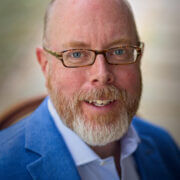In this episode

About our guest
Bob Lalasz (LAH-lish) is CEO of Science+Story, a consultancy he founded in 2015 that guides research-driven organizations on how to produce thought leadership that increases funding, leads, brand awareness and staff retention. Science+Story’s past and present clients include Adamantine Energy, Arizona State University’s Future H2O Center, Conservation International, The Energy for Growth Hub, the Los Angeles 2028 Olympics Sustainability & Legacy team, the Nature Conservancy, the Society for Science & the Public, Unlock Open and the World Wildlife Fund’s Global Science Leadership Team.
Before starting Science+Story, Lalasz was The Nature Conservancy’s founding director of science communications, a position he created in 2010 after four years as the Conservancy’s associate director of digital marketing.
Lalasz has had a long career as a communications and digital strategist for research-driven NGOs and research centers, including the Woodrow Wilson International Center for Scholars, Population Reference Bureau and American University’s School of Public Affairs. He was a founding member of the advisory council of Ensia, a magazine covering global environmental issues. He has also lectured on marketing and communications at Georgetown University’s School of Continuing Education. His podcast, Science+Story, is available on all major podcast directories.
Lalasz graduated from the University of Wisconsin-Milwaukee in 1992 with a BA in intellectual history and film studies. He lives in Arlington, Virginia, with his wife and their golden retriever, Maxie.
Our discussion
Thought leadership is an idea that many in the nonprofit space have chased, but what does that mean? Is being a thought leader something that benefits your organization or is it a content-producing engine? Tony sits down with Bob Lalasz, who many would consider a thought leader, about how he views the pros and cons to that title.
Listen on Apple Podcasts
Listen on SoundCloud
Mentioned in this podcast